
Maximize Your Strengths in the Workplace
ADHD and work don’t always mix. That’s why it’s important for you to know your own strengths, and how to best leverage them on the job.
Nikki Kinzer has dedicated her career to fostering improved living systems, transitioning from retail management and human resources to professional organizing, where she discovered her vocation in aiding individuals with ADHD. She refocused her business in 2010 to cater to adults and college students with ADHD, becoming a certified coach with the ADD Coach Academy and the International Coaching Federation. Kinzer’s current venture, Take Control ADHD, offers coaching, online trainings, and fosters a global community for those seeking to understand and manage their ADHD. She also co-hosts the successful “Taking Control: The ADHD Podcast,” which since its inception in 2010, has amassed over 500 episodes, millions of downloads, and a vibrant Discord community for listener engagement.


ADHD and work don’t always mix. That’s why it’s important for you to know your own strengths, and how to best leverage them on the job.

We’ve spent the last few weeks touching on the challenges of ADHD in the workplace. Today, inspired by your calls and emails, we’re talking specifically about what it means to tell your employer about your ADHD. It’s not a simple equation and while being open about your ADHD-related challenges at work may seem like a great idea, but there are considerations that may impact just how public you want to be. This week on the show, Nikki and Pete talk about the experience of ADHD at work, the role of accommodations and your rights, and offer some guidance for determining who to trust and how to move forward and reduce stress.
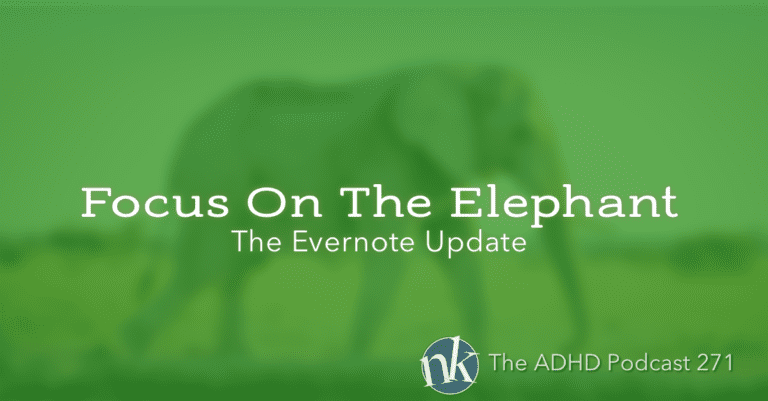
We’re doing double duty on the show this week! Still celebrating ADHD Awareness Month AND celebrating the wonderful blog post that Evernote did with us, we decided that now is as good a time as any to review how we use Evernote as an organizing tool today
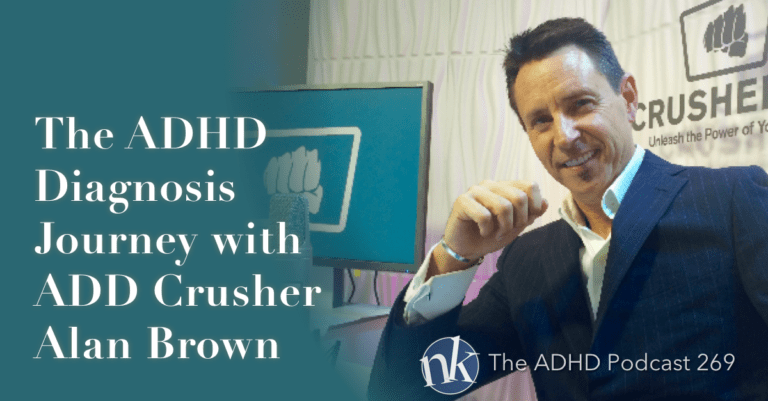
Let’s say it right out loud: you need to hear the story of our guest today. Alan Brown is the force behind ADD Crusher™ and Crusher™TV, helping people around the world in their journey with ADHD through his proven Brain Hack strategies and inspirational interviews. But his personal journey to understanding ADHD is a moving story and a model for coming to terms with pre-diagnosis, and making the transition to a new world post-diagnosis in our conversation today.

If you suffer from Imposter Syndrome, you’re a high achiever in some area, though you feel as if your achievements are not the result of training, skill, and intelligence, rather your success is the result of an accident of fate, and you are constantly on the cusp of being discovered as a fraud. This is, of course, something that we all live with at some point or another, but if you’re also living with ADHD, the judgment that you put upon yourself amplifies the negative signals in and around your experience of achievement.
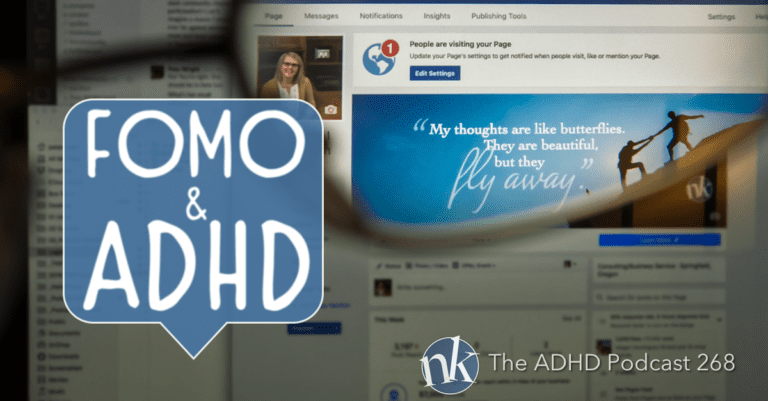
We’ve all been there, stuck between the rock that is our own responsibilities, and the hard place of the world that goes on when we’re not there to experience it. The grass is always greener, we say, and we find ourselves living in FoMO: the Fear of Missing Out.
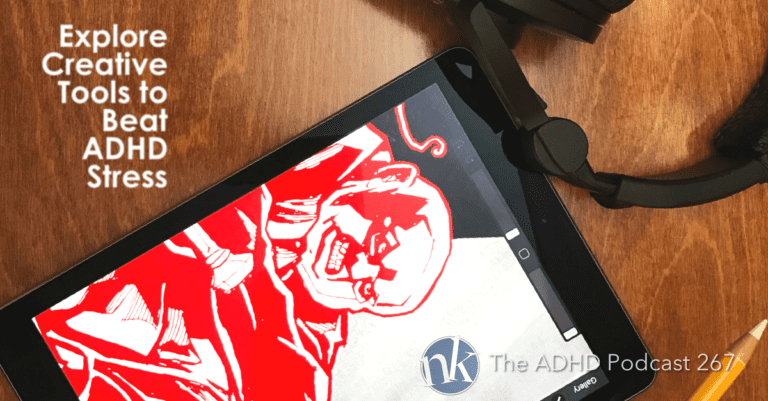
If you browse the ADHD circles on social media, it won’t take long to find an inspirational meme describing how one of the many superpowers of those with ADHD is that they are generally more creative than those without. The problem is, according to resear
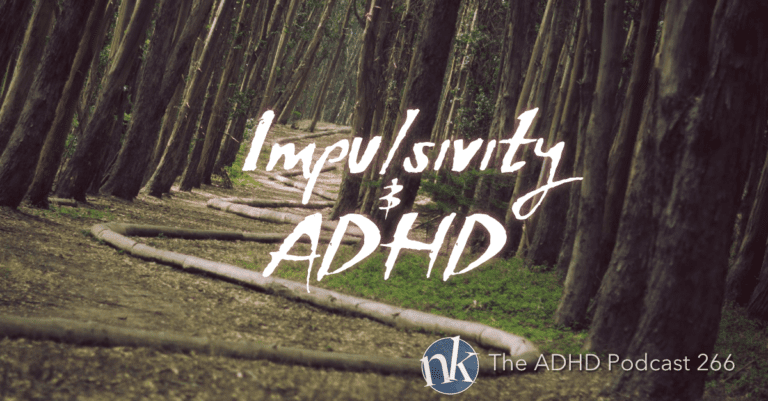
Impulsivity is a part of the ADHD experience that offers few upsides. It represents the source of distraction, social disruption, and lack of focus that can plague so many of us. We received an email this week from a listener working through email impulsivity at work and his story — and we hope our conversation around it — proves supportive for anyone listening who is living with impulsive behavior challenges.

It starts with a goal, an objective that you’d like to accomplish something over a specific period of time. It ends with the goal accomplished. Somewhere in between, you’re going to have to build the system that will help you get it all done. This week on the show, we’re sharing three big mistakes that can prevent you from meeting your goals, plus some terrific feedback in praise of the Bullet Journal, along with some great guidance on thinking in terms of long-term behavior rather than finish lines when targeting change in your life!

Want to get better at scheduling? Do it every day. Want to finish more things more frequently? Make a plan to work on one of them every day.